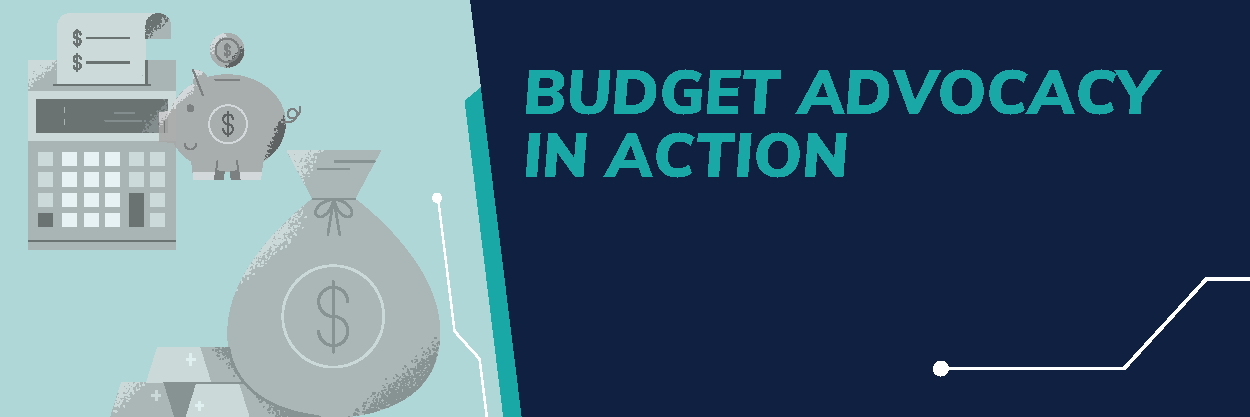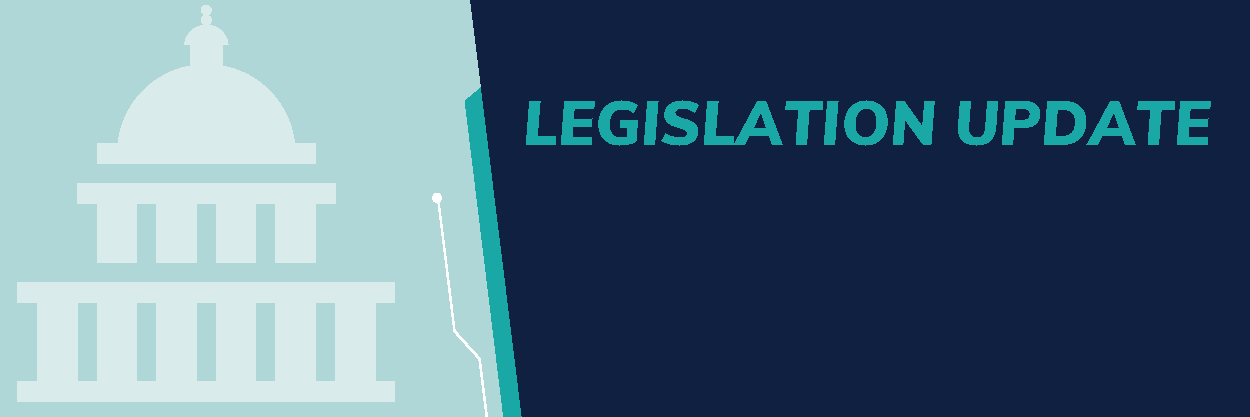In this Issue:
- League’s Recommendations Incorporated in System’s Shared Advocacy Request
- Update on Legislation Impacting Your College
- Engaging Our Newly Elected State Representatives
- Save the Date for Undocumented Student Action Week
- Join Us for our Next GR Webinar: Tuesday, October 18

System’s Shared Advocacy Request Adopts League’s Call for Higher Base Revenues
On September 27, the California Community Colleges Board of Governors approved the System’s Shared Advocacy Request containing the Budget Change Proposals for 2023-24.
The Chancellor’s Office will forward the Request to the Department of Finance for consideration in the Governor’s upcoming January Budget Proposal. The funding recommendations in the Shared Advocacy Request are organized around the goals in the Governor’s Roadmap for the Future for California Community Colleges, which include:
- Reduction in time and units required for a degree;
- Closing of statewide equity gaps;
- Improvement in educational outcomes;
- Support of intersegmental collaboration and data sharing; and
- Establishment of clear pathways to transfer and career.
Under the heading, “Improving Educational Outcomes,” is the centerpiece proposal, which seeks $400 million in unallocated resources to increase Student Centered Funding Formula rates and assist districts in meeting such inflationary cost drivers as salaries and wages, pensions, energy, and healthcare. Accompanying this request is an unspecified one-time allocation to provide relief for increases to CalPERS and CalSTRS retirement contributions.
Earlier this summer, the League submitted five recommendations to the Chancellor’s Office for inclusion in the Shared Advocacy Request. These included the following: a $500 million ongoing increase to the base; a $3.5 billion ongoing request for increased pension costs to cover both
K-12 and community colleges; $75 million ongoing for technology; $150 million in an ongoing flexible line-item for mental health and public safety; and an unspecified ongoing increase to cover COLAs for all categorical programs that didn’t receive one in the current-year budget. Three of the five recommendations were ultimately incorporated into the final document, albeit at different amounts than proposed by the League: unallocated increase to the base, pension assistance, and technology.
During the Board of Governors’ hearing on the Shared Advocacy Request, League President and CEO, Dr. Larry Galizio, expressed deep appreciation for inclusion of the unallocated increase to the base and technology request, and affirmed the need to maximize local control in funding decisions. The League also joined with the System Office in seeking greater resources for student housing, deferred maintenance, and financial aid reform.
In the next few weeks, the Governor will be collecting input from the multitude of state agencies and will fashion a budget based upon projected revenues. The League encourages districts to meet with state representatives, particularly after the November elections, to discuss local priorities and how increased resources can enhance student success, educational equity, and community development.

Update on Legislation Impacting Your College
September 30th marked Governor Newsom’s deadline to sign or veto bills his office received during the close of the legislative session. He acted on bills ranging from farmworker union organizing to minimum wage for fast food workers, to multiple measures intended to expand access to reproductive health services in the state.
For community colleges, he acted on several bills of high interest that will expand student access and success. The Governor signed a number of League-supported bills, including SB 1141 (Limón), which will make it easier for undocumented students to qualify for in-state tuition; and AB 102 (Holden), which will make permanent, dual enrollment programs authorized under the College and Career Access Pathway Partnership.
The Governor acted on two other high-profile bills– AB 1705 (Irwin) and AB 1856 (Medina). He signed AB 1705 (Irwin), which continues Assemblymember Irwin’s efforts started by AB 705, to limit cases when colleges can place students in remedial English or Math courses. The Governor vetoed AB 1856 (Medina), which would have increased the number of classes a part-time faculty member can teach in a year. In his veto message, Governor Newsom cited a likely increase in unfunded health care costs in the implementation of this bill as his reason to veto. You can see his full veto message by clicking here.
A list of League-tracked bills that made it to the Governor’s desk can be seen below.
AB 102 (Holden) Dual Enrollment Signed by the Governor
Makes dual enrollment programs permanent by eliminating the current sunset date of programs authorized under the College and Career Access Pathway (CCAP) partnership programs.
League Position: SUPPORT
AB 1187 (Irwin) Supervised Tutoring at Community Colleges. Signed by the Governor
Expands access to critical tutoring services by allowing CCC districts to claim state apportionment funds for supervised tutoring offered in credit-bearing, degree-applicable and transfer-level courses.
League Position: SUPPORT
AB 1655 (Jones-Sawyer) State holidays: Juneteenth Signed by the Governor
Adds June 19th, known as Juneteenth, to the list of state holidays, and requires public schools to close.
League Position: WATCH
AB 1705 (Irwin) Community colleges: Matriculation: Assessment Signed by the Governor
Requires that high school transcript be used as the primary means for determining placement in transfer-level English and transfer-level mathematics courses and narrow the use of multiple measures by colleges in the placement and enrollment.
League Position: WATCH
AB 1719 (Ward) Community College Housing Signed by the Governor
Authorizes community colleges to establish and implement affordable housing programs for faculty and employee housing. Allows colleges to access to Low-Income Housing Tax Credits (LIHTC) to build affordable housing.
League Position: SUPPORT
AB 1856 (Medina) Community colleges: part-time employees Signed by the Governor
Increases the maximum amount of instructional hours that a part-time California Community College (CCC) faculty member may teach at any one community college district
League Position: WATCH
AB 1919 (Holden) Youth Transit Passes. Vetoed by the Governor
Creates a 5-year, opt-in Youth Transit Pass Pilot Program for transit agencies to partner with educational institutions and receive grants to cover the costs of creating, designing, developing, distributing, and implementing free youth transit passes. Grants can also be used to maintain, subsidize, or expand an existing fare-free program.
League Position: SUPPORT
AB 1942 (Muratsuchi) Instructional service agreements Signed by the Governor
Requires the Chancellor's Office to issue a recommendation to the Department of Finance and the Legislature on the instructional service agreement (ISA) full-time equivalent student apportionment college districts are eligible to claim.
League Position: WATCH
AB 2881 (Berman) Students with dependent children Signed by the Governor
Requires the three segments to provide students with information on the California Special Supplemental Food Program for Women Infants and Children and to grant priority registration to student parents.
League Position: WATCH
AB 2315 (Arambula) Preferred or Affirmed Names Signed by the Governor
Requires each CCC district to implement a process by which students, staff, and faculty can declare an affirmed name and gender identification to be used in records where legal names are not required by law.
League Position: SUPPORT
SB 1141 (Limón) Non-resident tuition Signed by the Governor
Expands AB 540 eligibility for paying nonresident tuition at a California public postsecondary institution by removing the two-year cap on CCC credit courses that may count towards eligibility.
League Position: SUPPORT

Engaging our New State Representatives
The large number of new members elected to both the Assembly and Senate is an opportunity to engage and educate more than one-fourth of the legislature for the first time on issues of importance to our colleges and districts. In the coming weeks, the League will provide talking points on key issues of importance.
The reason for the significant number of new members elected as part of the 2022 election cycle – which concludes on Tuesday, November 8 – is connected to redistricting and term limits. Almost all races are impacted by the once every ten-year redistricting process connected to the United States Census.
With the redistricting process completed and new districts drawn, many members needed
to decide if the new districts were: 1) similar enough to their previous district, 2) in a location requiring a move of residence, 3) overlapping a colleague’s district, or 4) creating a district where they had no chance to prevail. In some cases, members also contemplated whether another elected position would open because of a retirement or departure.
The first wave of term limits for members wasn’t predicted to impact Sacramento until 2024, when more than one-third of members were expected to term out (beginning in 2012, members were allowed to serve 12 years in either house, instead of 6 years in the Assembly and 8 years in the Senate). Given the redistricting process, many members had to decide their long-term plans sooner, rather than later.
The Assembly will have at least 23 first-year members due to early departures or candidates running for another seat. This figure doesn’t include the six members of the Assembly elected in special elections over the last two years. The number of new members could be as high as 27. There are several committee chairmanships available, including on the Education and Higher Education committees.
Only half of the 40 Senate districts were up for reelection in 2022 with the newly drawn maps. The other half will wait until 2024. Given that only 20 seats are up for election, it’s impressive that there will be at least ten new senators in 2023, and it could go as high as twelve if incumbents in tough races lose. There could also be at least four sitting or former assemblymembers who will move to the Senate. Additionally, a few committee chairmanships will be open because of term limits, including Health; Energy, Utilities and Communications; and the Education committees.
The bulk of the Assembly and Senate leadership look to be in place until 2024, but that depends on what happens on December 5th, and who assemblymembers elect to serve as the Speaker of the Assembly. The Speaker of the Assembly decides the committee assignments for the body, and should a new Speaker be elected, there could be significant changes to all committees. It is unclear when we will know committee assignments, including chairmanship, for the 2023-24 session, or how significant any changes will be

On October 5, the Fifth Circuit Court of Appeals ruled that the Deferred Action for Childhood Arrivals Program (DACA) violated the Administrative Procedure Act. Although the program’s future remains unclear, the court stated that current recipients may still renew their DACA status. The court's ruling reaffirms the urgent need to protect and support the thousands of undocumented students in California pursuing their higher education goals.
This week, October 17-21 marks our 6th Annual Undocumented Student Action Week (USAW),
a statewide advocacy effort led by the Chancellor’s Office, the League, and the Foundation for California Community Colleges. This year’s theme, Juntos Podemos (Together, We Can): Collaborative Ecosystems that Support Undocumented Students, focuses on being intentional about integrating undocumented student success throughout equity initiatives. USAW features daily systemwide webinars and in-person advocacy. Information on webinar registration and access to the 2022 USAW Toolkit can be found on the Chancellor's Office webpage.
Now, more than ever, it is vital to show undocumented students that regardless of the court ruling,
we will steadfastly support them. Please join us for a week of advocacy alongside students, immigration experts, on-campus advocates, and our statewide partners.
Undocumented Student Action Week Webinar Series | 9:00–10:00 a.m. Daily
10/17 — Sustaining a Supportive Ecosystem through Local, State, and Federal Advocacy
10/18 — From Policy to Practice: Implementing Policies with Students in Mind
10/19 — Centering the Undocumented Student Experience Through Campuswide Collaboration
10/20 — Free Day for Advocacy
10/21 — Ensuring Equitable Access to Financial Aid for Undocumented Students
October 2022 GR Webinar: Raising Campus Voices Through Civic Engagement
The Community College League of California is pleased to be joined by California Secretary of State Shirley N. Weber, Ph.D. and members of her staff, and the Student Senate of the California Community Colleges at our October Government Relations Webinar on October 18, from 11 am to noon. The discussion will focus on how campuses can help improve student civic engagement.
The Secretary of State and her staff will be sharing tools for engagement that can support your campus. The session will also include a panel of students and campus administrators sharing best practices you may want to consider implementing to engage students. The Secretary of State’s staff will also be available to answer any of your questions.
While all members of the Community College districts are invited to join us, California Community College trustees, CEOs, PIOs, administrators, and students are encouraged to attend. Please register in advance of this webinar.
Please register here.
Upcoming Events
Undocumented Student Action Week
October 17-21 | Zoom
October 26-29 | New York City, NY
November 17-19 | Burlingame, CA
For more information, contact the League's Government Relations and Communications staff: advocacy@ccleague.org
Follow League Tracked Bills at www.ccleague.org/advocacy/bill-tracking
For news related to the State Budget and Policy visit www.ccleague.org/advocacy









